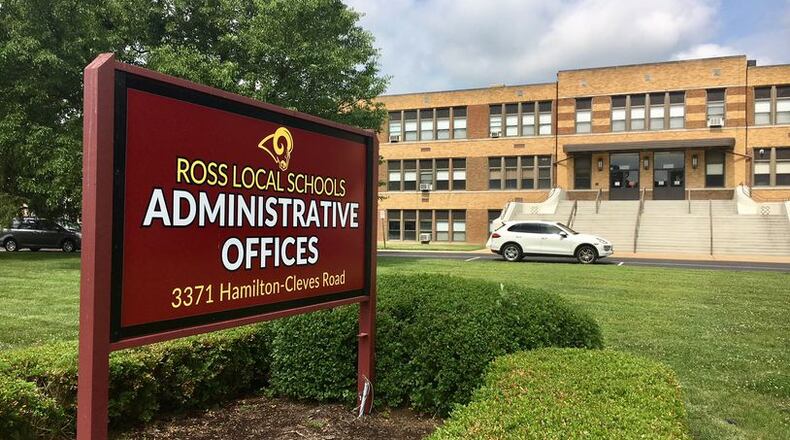Residents in the 2,800-student, largely rural school system will be asked to decide on a 5-year, 7.99-mill, emergency property tax levy that if approved at the ballot would raise the annual school property taxes for the owner of a $100,000 home by $279.65.
In a joint statement released by the Ross Board of Education members, they wrote the last local property tax to be approved by voters was in 1999.
Board members said the tax increase is needed after the schools received less state funding than the district has in recent years from Ohio’s biennium budget approved in June 2021.
Moreover, they said budget cuts in recent years totaling hundreds of thousands of dollars in program and personnel reductions will not bring Ross to projected fiscal solvency without the influx of more local tax revenue.
“The district has drastically cut costs during the last two years,” board members wrote.
“Last year $600,000 was cut, and this year $700,000 was cut. Unfortunately, we are not able to cut our way back to financial stability because this is not a spending problem, but rather a revenue problem.”
“The state of Ohio views Ross as a wealthy community. Because of that, they have diminished their contributions and expect residents to more aggressively fund their schools.”
The board members said “the administration has been very open and transparent in regard to the current financial situation. They have opened their books to the community, using various methods, such as focus groups, podcasts, winter newsletter, updates via the district website, and a series of FAQs through both social media and email.”
Voting for the August tax issue will stave off the possibility of state control of Ross Schools, they said.
“The district received a precautionary fiscal emergency letter from the Ohio Department of Education in December 2021 stating that the revenue problem must be fixed. If we are unable to do so, the state will declare the district to be in fiscal emergency.”
“Once that happens, an external governing body will take control and will cut both staff and programs to a minimally required level as well as ask for a monumental levy. We do not want to see that happen. The damage to the district would be exponential and would greatly hinder the district, as well as your property values, for many years to come.”
A voter rejection of the proposed tax hike in August, they said, will force more budget cuts in Ross Schools, which over the last decade has consistently been among the top academic performers in the southwest Ohio region.
“If the August levy does not pass, the district will be forced to take immediate action. These actions will, unfortunately, cut deeply and cause significant damage to the learning environment. The need to increase revenue won’t go away but only become greater as time moves on. The levy will reappear on subsequent ballots, and each time the millage will have to be increased due to the lag in funding.”
“The last property tax levy was passed in 1999. For the last 23 years, the district has provided students with a stellar education, comparable to districts such as Indian Hill, Wyoming, and Sycamore, only with much less revenue from our tax base. A small income tax levy was passed in 2019, but that was not substantial enough to bear the ongoing demands. While we understand the difficult economic times, almost all high performing districts in the Cincinnati area have passed many more levies than Ross in the same 23-year period. We have done well stretching our dollars for as long as we have,” board members said.
Ross officials invited residents seeking more information on the district’s financial state and the proposed tax levy to go to the district’s website.
About the Author

